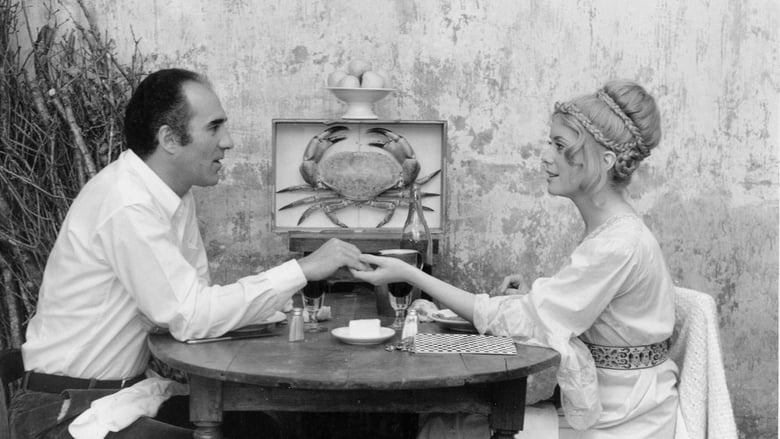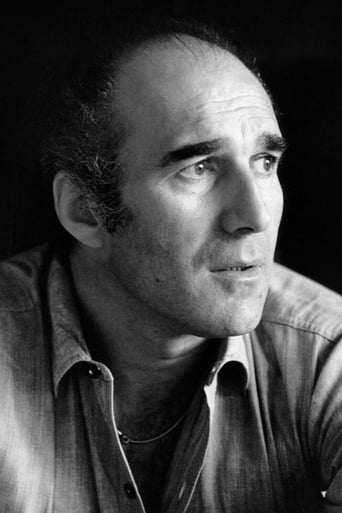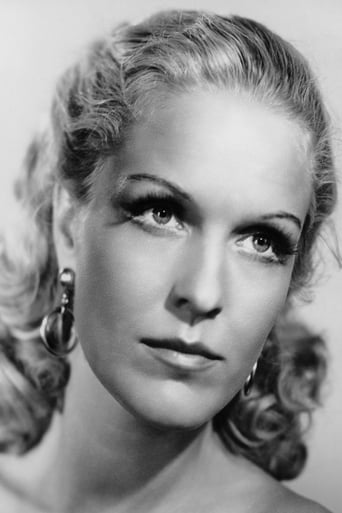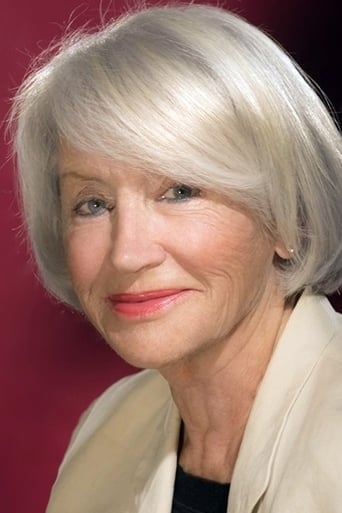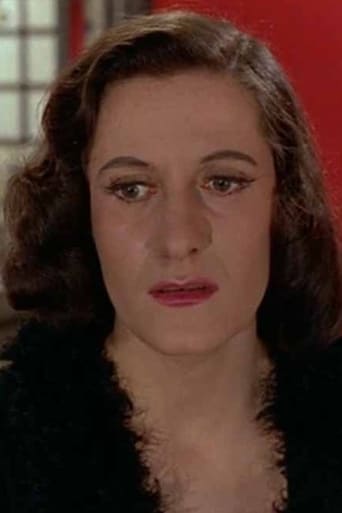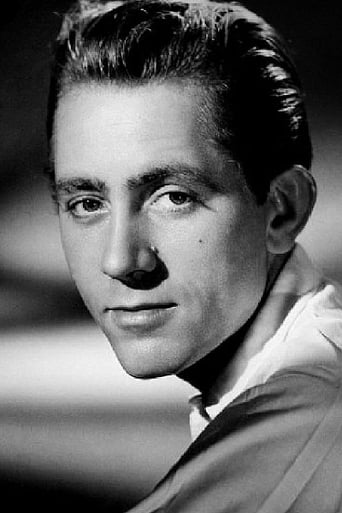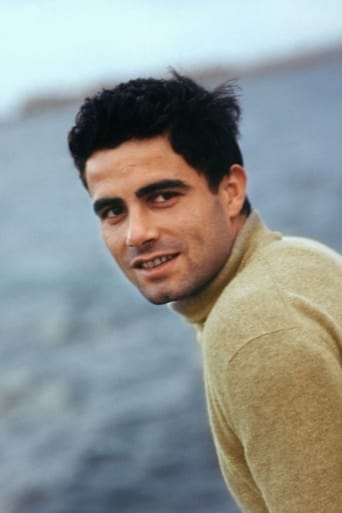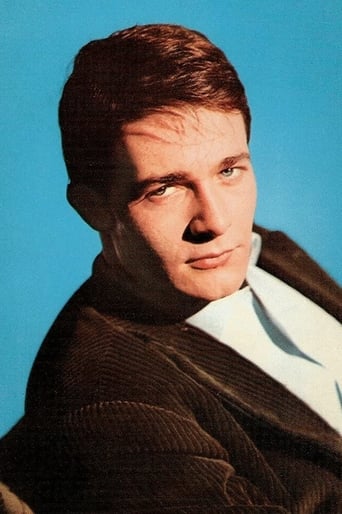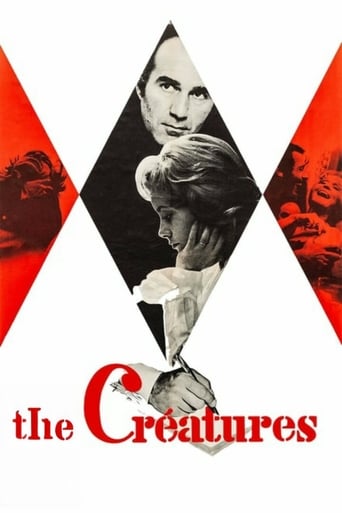
After a road accident, a writer, Edgar, and his wife, Mylène, take up residence on an island off the coast of France to recuperate. Edgar soon recovers from his injuries and begins writing his next novel, seeking inspiration from the local people. His wife, however, has lost her voice and can only communicate through written notes. The islanders grow suspicious of the reclusive couple, their unease soon turning to aggression. Edgar is equally anxious about his neighbors, particularly a solitary widower, Ducasse, who has taken charge of a large consignment of crates. What secret project is Ducasse engaged in – and can it explain the strange behavior of the islanders?
Similar titles
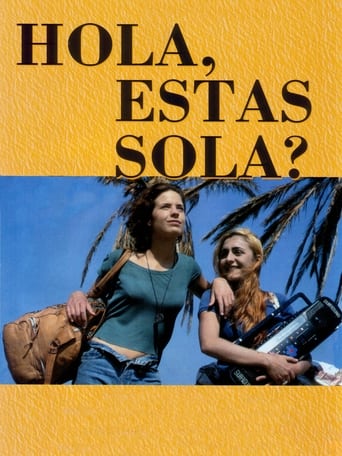
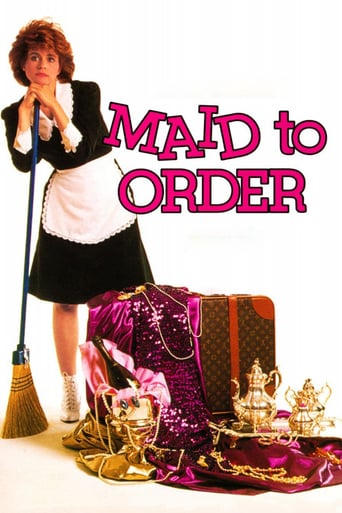
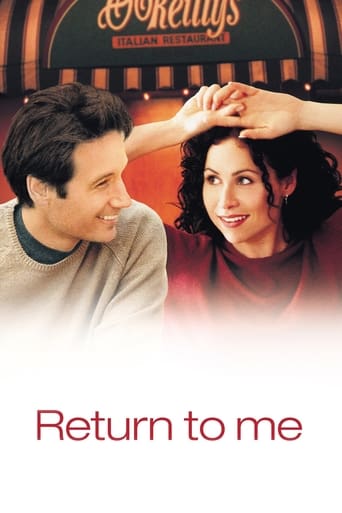
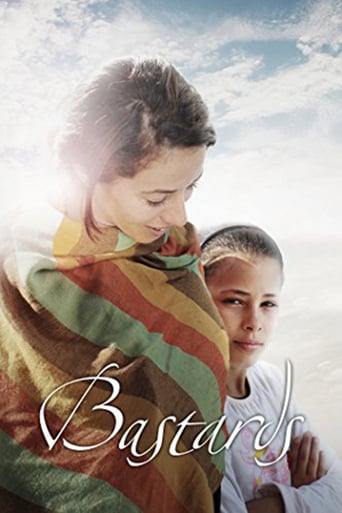
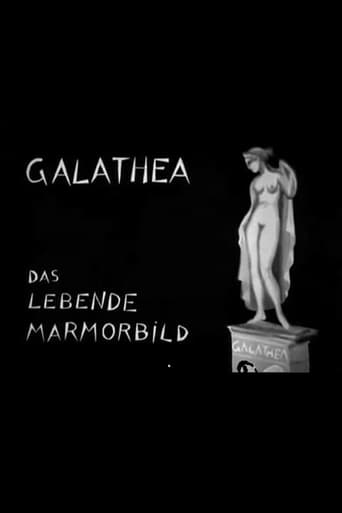
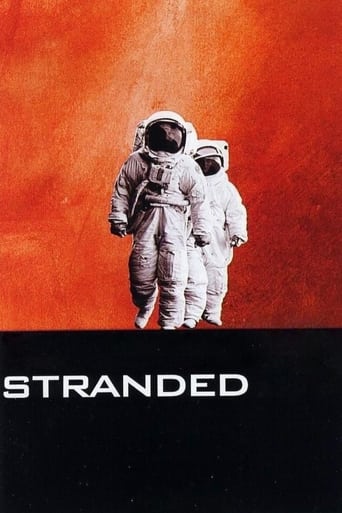

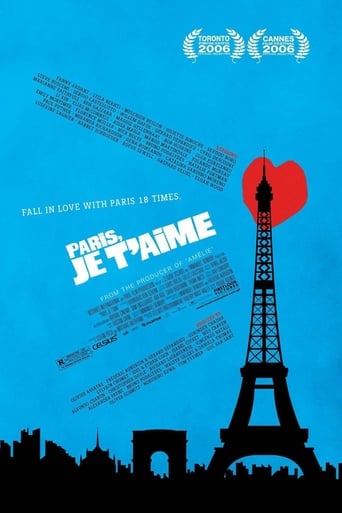

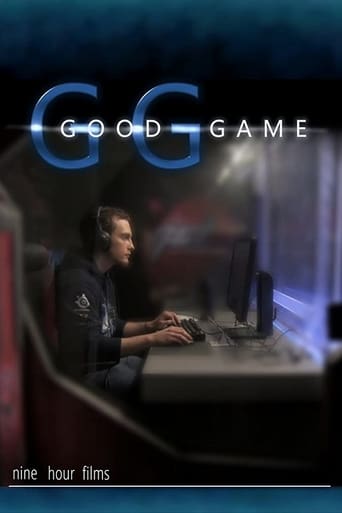
Reviews
If you don't like this, we can't be friends.
Good concept, poorly executed.
Each character in this movie — down to the smallest one — is an individual rather than a type, prone to spontaneous changes of mood and sometimes amusing outbursts of pettiness or ill humor.
Blistering performances.
In this totally senseless pseudo-sci-fi film, Catherine Deveuve is mute for 95% of the time; as if to compensate, her husband Michel Piccoli (playing a character named Piccoli - how profound) can talk to animals! Shot in black-and-white, the film uses a red monochrome every time someone does something weird - which happens a lot. It also has an incessantly piercing violin score. One of those art films which drive people away from art films. 0.5 out of 4 stars.
..the others will think it merely arty.Like so many nouvelle vague artists,Agnès Varda tries hard here to say something "deep" "meaningful" and "of consequence".All Varda's qualities seem to have vanished into thin air:spontaneity,simplicity and sensitiveness,which made her beautiful "Cleo de 5 à 7" so worthwhile and so new at the beginning of the sixties.These qualities seemed to remain in the follow-up "le bonheur",but this latter work is rather unpleasant in several respects.(Mrs Alice Liddell wrote a very good IMDb comment for "le bonheur",read it and you'll know what I mean)In "les creatures" Varda casts Piccoli as a writer and Deneuve his mute (because of an accident)wife .The other characters are all pawns in a giant chess game.Sometimes the screen turns red ,maybe to indicate that it's not the same "player",who knows?Actually this is the kind of movie which defies analysis.It was the eighties before Agnès Varda was again in clover with "sans toit ni loi" and "Jacquot de Nantes".
Les Creatures is marvelously created like all of Varda's films I've seen. There are many wonderful things about this exciting movie, especially the story, how it relates to real life, and the roles of the protagonist and the two Quellec sisters.The story of Les Creatures is very impressing with its concern with free will, fatalism, and determinism. Moreover, it gives the impression of a myth and science fiction at the same time. And the idea about the live-chess game is very exciting. I really wish that someone should take this idea as a basis for a TV series or reality show. In Les Creatures, the game doesn't last as long as I want. I want to see it lasts for 30 hours or so. It's very enjoyable seeing characters' lives dramatically change after one character meets one another. (Maybe that's why I like `Melrose Place.') And I think some reality show can use this idea as well.The idea about the abruptly changes of emotion and behavior is also intriguing. Though these sudden changes, which are cleverly emphasized by the changes of color, seem a little bit comical, I think they are an intelligent way of representing reality. Many people, including me, have experienced a lot of these abruptly changes of emotion in real life. Many times anger does arise suddenly, unexpectedly, involuntarily and seemingly unreasonably, and pass away very quickly, leaving only destruction and regret. This movie displays very well this part of real life. And it makes us think about some questions of life. While the characters in this movie suffer the volatility of emotion and behavior because they are the helpless victims of the scientist, does that mean we, who actually suffer severer volatility of emotion in real life, might be the victims of ourselves as `the scientist' lives within our mind? Are we as totally helpless as these characters? Can't we fight our bad impulses? Is it just one part of our mind that makes us suffer? And can that bad part, like the scientist, be destroyed by another part of our mind?The role of the protagonist has so many interesting things about it. In one of the early scenes, he looks down from a high tower to the rising level of water. He lives in a secluded castle. He can scare the bad girl by his mere presence. He can talk to animals. In one scene, he even claims jokingly that he is something other than normal human being. When the game begins, we see his presence in many places. As a player in the game or as a writer, he can manipulate (real or fictional) lives. But the thing that impresses me the most about him is his reaction to the game when the old man harasses the girl. He can't tolerate this. He cannot let it happen without his intervention. He doesn't want to play the game any more if he cannot prevent things like this. He'd rather deny the role of life-manipulator than to let such things happen. However, the role of his wife, played by Deneuve, is quite passive. And I think it might be an interesting idea to compare the roles of Deneuve and Piccoli in this movie with their roles in `Belle de Jour.'However, the characters who impress me the most are the Quellec sisters. In my opinion, they seem to be the true winner in this game of life though misfortunes sometimes befall them. The younger sister astonishes me, and can even surprises the scientist, by her reaction when she discovers the truth about her lover. This minor character wins a lot of respect from me, and will always remain outstanding in my memory. The older sister seemed boring at first. She made me assume beforehand that she was just a character easily found anywhere else a woman who is foolishly in love. But this character surprisingly develops. She can learn the lesson of life. And at the end, she makes me feel like cheering for her when she reveals to whom her affection might turn.
"When one has much to put in them, a day has a hundred pockets." NietzscheIn the first few reels of this film, quite a number of things were slipped into the pockets of different people. What they were, and into whose pockets and by whom they were slipped was not always readily apparent. If it had been, my mind might not have drifted into default mode and thought of the Nietzsche quote - which quote may or may not have influenced Agnes Varda. Perhaps she just liked pockets. Pockets can be decorative and they can reveal as well as conceal. And what deeper convoluted pockets than those of the mind?The film begins with a couple travelling in a sports car - she implores him to go slower. His response, predating that of a popular American actor yet to be born, could be synopsized as: "I feel the need for speed." The stimulation, the rush, the kinetic excitement of rapid movement . . . this feeds his artistic temperament. She still wishes him to slow down - or at least be more careful. The camera slowly pulls up from the plane of movement of the car, which is travelling by the seaside, until the car disappears and we hear the inevitable crash.The rest of the film takes place on an island. The man seems to have adapted to the thoughts of Raymond Inmay on creativity: "If you are seeking creative ideas, go out walking. Angels whisper to a man when he goes for a walk." While this may be true, some islanders see his walking as suspicious.For a writer - and a filmmaker, I imagine, everything in life can become grist for the artistic/creative mill. One well-known actor once told Fellini how he interpreted one of his movies and asked him: "Am I right? Is that what you meant?" To which Fellini responded: "If that's what you saw in it, that's what I meant." While I have some ideas about what the pockets could mean, I have very few about the sea crabs, whose imagery was also rather abundant. If you're on an island, you're going to see ocean life. But there were a lot of crabs, both dead and alive, and a mechanical claw device, used in concert with a live-action "chess" game toward the end of the film.What is actually going on in this film? Well, besides Nietzsche, you might want to keep a line from Gilbert & Sullivan on hand - HMS Pinafore, Act II (1878) "Things are seldom what they seem/ Skim milk masquerades as cream" Perhaps 1/2 hour into the film, the cinematography gives a pretty good clue that there is more than a singular reality operating here - and things pretty much flow from there to the film's conclusion.And what does Mr. Ed have to do with anything? Well, I don't recall any non-cartoon talking rabbits in pre-1965 cinema (although I'm not saying definitively there *weren't* any). But there was a talking horse who won a Golden Globe award in 1963. Was Agnes Varda a Mr. Ed fan? I know not. Regardless, the talking horse and talking bunny sequence were nice lightening touches in the film. Another was the "in-joke" (if you know Varda's filmography) of two guys trying to crack a safe - and they get inspiration for 2 of the numbers from Varda's CLEO FROM 5 TO 7.So - what kind of creatures are we, anyway? Are we the masters of our universe? And, if we are a writer - are we even the master of the characters we invent? More than one writer has reported characters in a work of fiction taking on a life of their own - becoming unruly, even. And if a writer has difficulty controlling his own "creatures," how much control do the writer's "creatures" have over their own destiny?How much do *we* have over ours? Or over that of others?This question is perhaps best amplified by the live-action "chess" game toward the end of the film. Even the best of intentions can have unexpected results. Just a minor change in circumstances can have a cascading effect (Kieslowski's BLIND CHANCE, 1982; Howitt's SLIDING DOORS, 1998)These are a few of the thoughts, loosely stuffed in available pockets, that washed over me in the watching of the film. I was also reminded of Jonathan Carroll's first novel, THE LAND OF LAUGHS about writers and their creations. Check it out - it might even make it to the screen some day.
Top Streaming Movies











